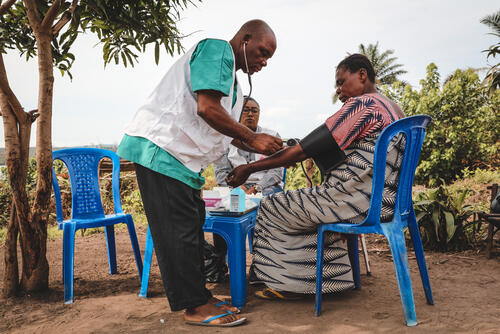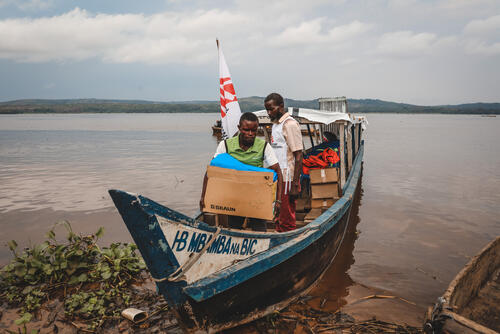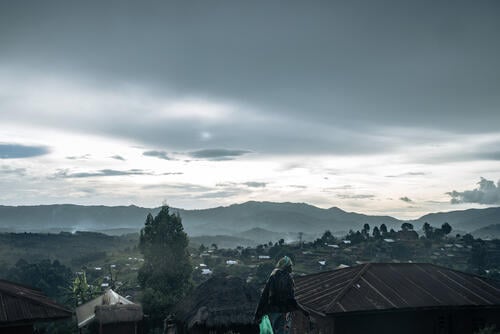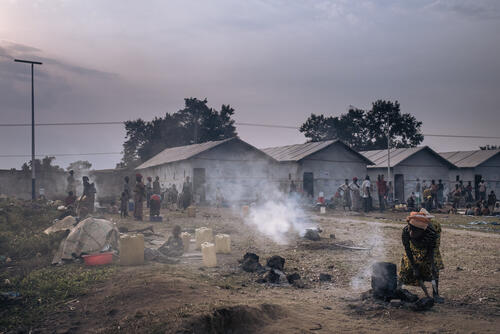In August, following an outbreak of violence in the provinces of Mai-Ndombe and Kwilu, in the Democratic Republic of Congo (DRC), Médecins Sans Frontières (MSF) head of mission Alessandra Giudiceandrea spent several weeks in the region as part of our emergency response.
She describes her shock at witnessing the aftermath of the violence, her frustration at the difficulties of mobilising other humanitarian organisations, and her unease at the security-based approach to resolving this crisis.
“No one foresaw what happened in Mai-Ndombe and Kwilu provinces – including us. Like anyone else, we were taken by surprise by the scale and intensity of the violence: people killed, houses burnt down, thousands of people displaced from their homes.
According to Congolese authorities, at least 180 people were killed – although the actual toll is likely to be much higher. One might ask: how on earth did we get to this point?
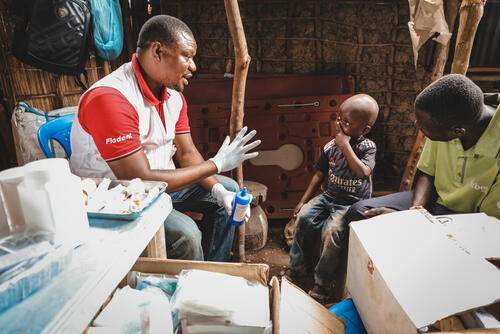
The current situation was sparked by a land dispute, rooted in longstanding customary and administrative tensions, in an area where many communities live. Localised incidents snowballed into indiscriminate acts of violence.
Within a few days of our arrival in Kwamouth territory, where the clashes started, we saw how a cycle of revenge had set in, with attacks and reprisals on all sides. The violence soon extended beyond Kwamouth territory. Hate speech exploded and yesterday's neighbour became ‘the enemy’.
As humanitarians, our role is not to judge. Instead it is to limit the dramatic consequences of the violence for the people caught up in it. On National Road 17, on the way to Bandundu, we passed entire villages that had been burned to the ground. We saw inhabitants who had been massacred, their bodies mutilated. It was clear that women and children had not been spared. Despite my long experience with MSF, I can say that you never get used to this level of violence.
One of our patients told us that during the attack on his village, he recognised his neighbour. To protect his wife, he was forced to kill him.Alessandra Giudiceandrea, MSF head of mission in DRC
Heartbreaking testimonies
One of our patients told us that during the attack on his village, he recognised his neighbour. To protect his wife, he was forced to kill him. Children, now orphans, told us that they had seen their parents murdered.
In the panic that followed attacks, family members lost track of each other, remaining without news of their loved ones for weeks, often without knowing whether they were dead or alive. Violence, anxiety, guilt: events like these create lasting psychological trauma.
As the attacks were regularly followed by looting, many of those who managed to flee have lost everything. Today, some of the displaced people are sheltering in sites in urban centres such as Bandundu, but almost two-thirds are still scattered in villages on the borders of Kwilu and Kwango provinces, sometimes several hours’ walk from their homes.
Some have been able to benefit from the solidarity of host families, who share what little they have. Others have found refuge in the forest and do not dare leave. All of them need support.
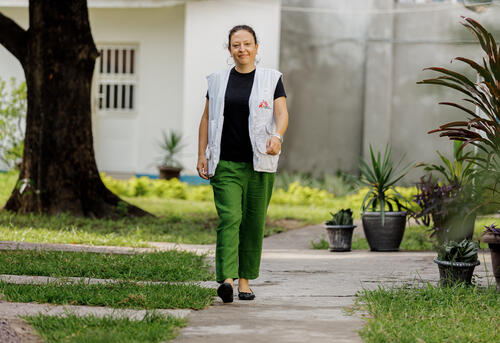
Acting fast and making a difference
MSF was the first humanitarian organisation to send teams on the ground at the end of August. Within a few weeks, we had provided hundreds of medical consultations. By boat or vehicle, we transported more than 20 patients in serious condition to Kinshasa for specialist medical care.
Some patients had infected wounds that were weeks old because they had not dared seek medical attention. For our teams, reaching these patients often meant travelling for four to five hours by boat to pick up one or two people. It was a lot of work and exhausting for the teams. But they provided vital support.
In the course of this emergency response, we kept on asking ourselves the same questions: are we doing enough? Are we doing it right?
Beyond the provision of medical services, bearing witness is another way to make a difference for people in need. This is precisely what we have been trying to do for the past two months, in order to bring on board other humanitarian and protection organisations so that an adequate response can be provided to this crisis.
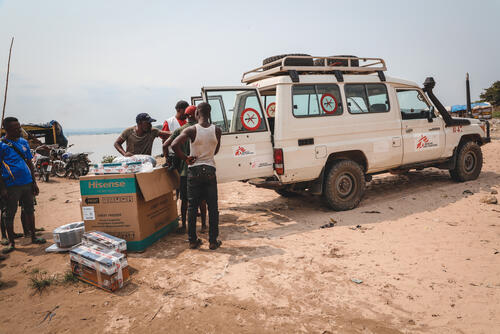
Mai-Ndombe is a humanitarian desert
Unfortunately, our calls for an increased humanitarian response have not been heeded. ‘Not enough needs.’ ‘Too few resources.’ ‘Too much insecurity.’ Here, as in so many other areas of DRC, trying to mobilise others is tiring and frustrating.
In recent weeks, the clashes have become less frequent but also more scattered. They now extend over a large area north of Kinshasa, between the Congo River and the Kwilu River, making it very difficult for us to respond everywhere at once. In villages that have not been attacked, the inhabitants continue to live in fear.
The situation remains highly unpredictable. The absence of attacks does not mean that everything is under control or that life has returned to normal. Tensions and hate speech are still present.
Unfortunately, our calls for an increased humanitarian response have not been heeded... trying to mobilise others is tiring and frustrating.Alessandra Giudiceandrea, MSF head of mission in DRC
The entire social and community fabric must be rebuilt. Protection organisations have a crucial role to play in establishing dialogue, raising awareness of the protection of civilians and ensuring the care of orphaned children, among other things.
In these circumstances, a purely security-based approach to the current crisis does not seems to be a viable solution. As humanitarians, we have seen this too well in other parts of the country plagued by violence. All too often, such approaches jeopardise the provision of rapid, impartial, neutral and independent humanitarian assistance where it is most needed.
How long will Mai-Ndombe remain a humanitarian desert? More than two months since violence broke out, this situation raises important questions about how the humanitarian system functions in DRC and about its capacity to respond to the multitude of simultaneous crises affecting the country. These are questions that urgently need to be addressed.”



